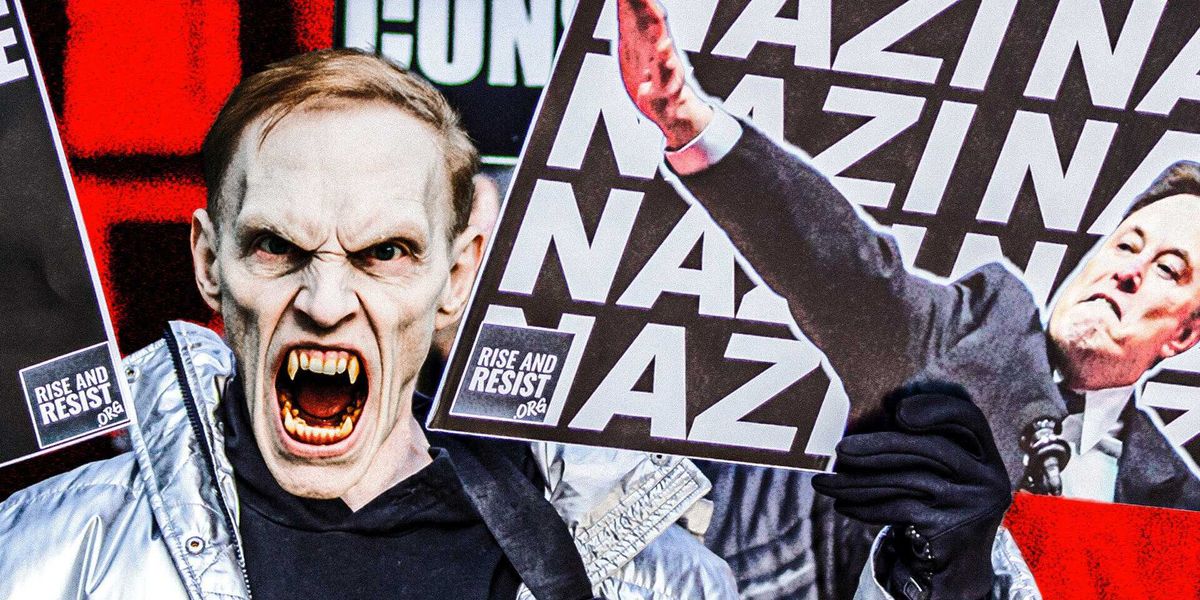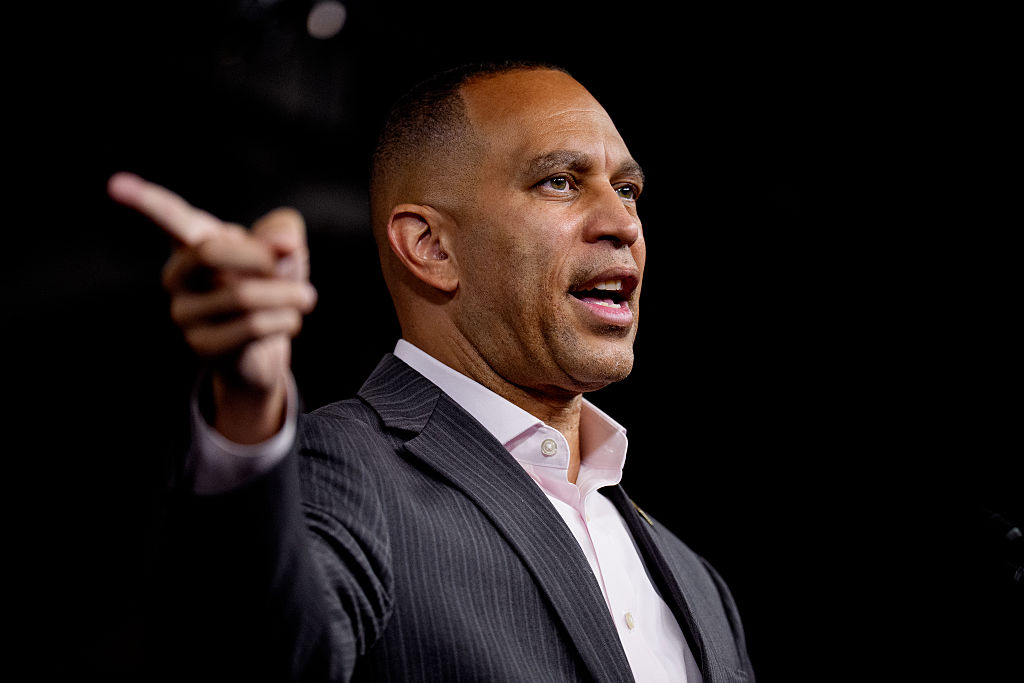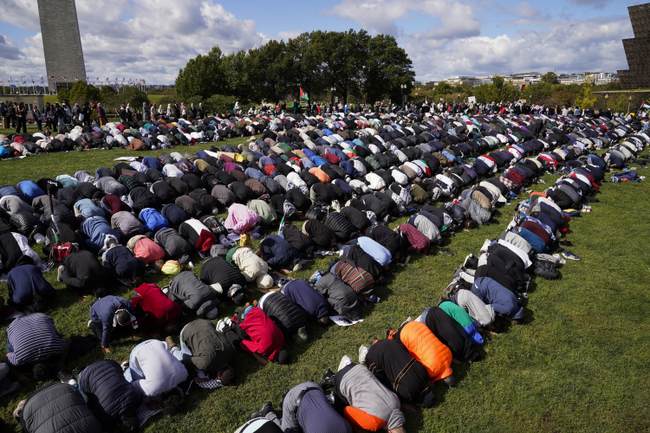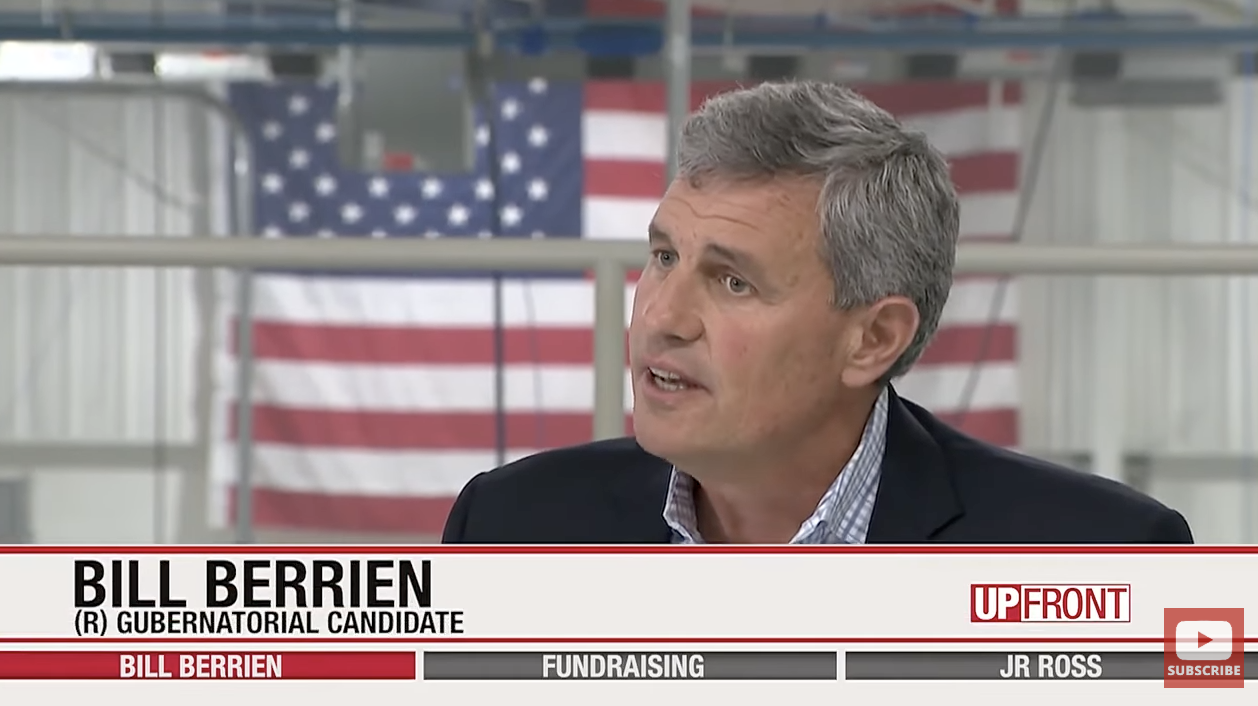

The post-Enlightenment West prides itself on having left religious myths behind. Sophisticated people scoff at demons, devils, and other silly superstitions. But ideas that once wore robes and halos simply change costumes. The idea of absolute evil re-emerges in secular form, and fascism plays the part of the devil in our political imagination.
Once a movement or person becomes the secular Satan, debate ends and violence begins to look like the only remedy. That is why leftists now call ordinary conservative positions “fascist” — they build the moral case for political violence.
Publicly branding an opponent ‘fascist’ with the expectation that it justifies violence should be as unacceptable as calling for a race-based lynching.
Consider the common thought experiment: “Would you travel back in time to kill baby Hitler?” Many answer yes. The image of a helpless infant collides with the scale of evil Adolf Hitler later embodied. For some, the calculus seems to justify murder when it prevents mass atrocity. Hitler stops being a human in that mental model; he becomes pure malignancy, and ordinary moral rules fall away.
That same process unfolded on American streets and campus quads over the past eight years. In 2017 Richard Spencer, a white nationalist, received a shove and a punch while speaking publicly. Spencer committed no violence that day. He threatened no one. He merely exercised his right to speak.
Still, many on the left cheered the assault. The assault collapsed an important boundary: If someone looks or sounds like a “Nazi,” is it now permissible to punch him? The Supreme Court long ago protected ugly speech, even the American Nazi Party’s right to march through a town with a large population of Holocaust survivors.
Anti-fascism as civic religion
But popular sentiment has shifted: Physical force against those denounced as fascists won moral approval from many progressives.
From insults to legal penalties to physical attacks, the escalation followed a familiar arc. Speech codes function as secular blasphemy laws. Labels like “bigot,” “racist,” or “transphobe” once carried distinct meanings; applied relentlessly, they blurred into a single category: heretic.
When those tags lost bite, the left raised the stakes. “White supremacist” replaced “racist” for positions like ending illegal immigration or opposing radical medical interventions for children. When that failed to stanch conservative influence, progressives reached for the final word: fascist.
That choice carries theological force. In secular modernity, defeating Hitler and the Nazis became a foundational myth. Anti-fascism assumed the status of a civic religion: a liturgical memory, a ritual cast of villains, and a duty of perpetual vigilance.
Paul Gottfried and other thinkers note how anti-fascism functions as a moral system after World War II. Comparing any enemy leader to Hitler became morally decisive. Nationalism, family veneration, and cultural continuity assumed guilt by association. The strong gods, once banished, left a moral vacuum that anti-fascism now fills.
RELATED: Calling MAGA ‘fascist’ is the smear of the century
 Gina Ferazzi/Los Angeles Times via Getty Images
Gina Ferazzi/Los Angeles Times via Getty Images
We’re all ‘fascists’ now?
Yet, fascism as a coherent political doctrine remains a historical phenomenon tied to early 20th-century Italy and, in some respects, to German national socialism. Stretching the term until it fits every conservative position strips it of analytical meaning. Calling something “fascist” should require attention to ideology, not impulse. Treating the word as a universal moral obliterator turns politics into theology. You cannot bargain with demons; you must exterminate them.
The very online left sells a modern variant: “ontological evil.” Call someone ontologically evil and you deny that person’s capacity for change. Evil becomes an essential property, not a series of choices. A man deemed ontologically evil stops being a political adversary and becomes a predator to be neutralized. That rhetoric creates a moral climate in which killing a political opponent appears not merely excusable but necessary.
We hear that rhetoric applied to mainstream conservatives practically every day. News figures, pundits, and Democratic politicians label President Trump and his supporters “fascists” or, at the very least, “semi-fascist.” After Charlie Kirk’s murder, some commentators continued to call him a fascist. Those who declared him so while he lay dead turned vile accusation into a license for dehumanization. The slogans scrawled by the shooter evoked the same anti-fascist catechism.
When likely presidential candidates like California Gov. Gavin Newsom (D) brand ordinary conservative beliefs — national sovereignty, for example — as “fascist,” they signal to zealots that violence is not just allowed but morally mandated.
RELATED: Gavin Newsom’s ‘fascist’ slur echoes in the streets
 Genaro Molina/Los Angeles Times via Getty Images
Genaro Molina/Los Angeles Times via Getty Images
That dynamic plays out in organization and funding as well. Networks of activists and groups that tolerate or endorse violent tactics receive resources and cover. Antifa and similar formations act as paramilitary foot soldiers who can intimidate, disrupt, and, when they choose, kill. They do so with the encouragement of influencers who frame opponents as existential threats. Label someone a fascist, and the path to extra-legal action opens.
Argument, not extermination
Americans must treat such rhetoric with the same moral opprobrium once reserved for lynch mobs. Publicly branding an opponent “fascist” with the expectation that it justifies violence should be as unacceptable as calling for a race-based lynching. When progressives use “fascist” to mark a target for death, they weaponize language to strip victims of human rights.
We must also restore analytic discipline. Accurate political language matters. Fascism, nazism, and other totalizing ideologies warrant denunciation and opposition, but we dilute our ability to resist genuine threats when we scream “fascist” at any conservative who supports border security or traditional marriage. If every disagreement becomes a call to arms, the political space collapses into a permanent state of evisceration disguised as moral clarity.
Finally, recognize what this rhetoric teaches would-be killers. If violence succeeds in silencing a critic, networks that cheer the act learn an obvious lesson: violence pays. The civic cost is enormous. The social fabric frays. The state loses its monopoly on legitimate force when vigilantes and ideologues decide they hold moral authority to execute enemies.
Treat accusations of “fascism” with the contempt they deserve. And make clear that no label grants anyone the right to take a life. If we let secular Satan labels justify bloodshed, we will learn in short order how quickly a republic can abandon its own laws and become hostage to its worst angels.
.png)
 2 hours ago
1
2 hours ago
1















 English (US)
English (US)